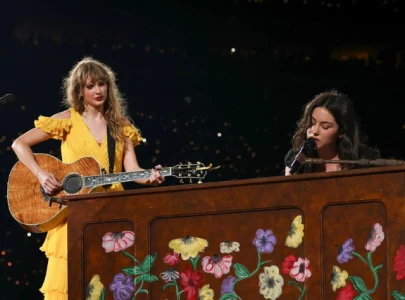
The top US diplomat flew to Jeddah, Saudi Arabia, for talks with the Syrian opposition leader Ahmad Jarba before meeting for more than three hours with Saudi King Abdullah to discuss the widening crisis in Iraq and Syria.
King Abdullah has consistently called for greater US military support for the moderate Syrian rebels, whom the Gulf kingdom has long backed.
But amid concerns about a spill over from Iraq where militants have seized a swathe of northern territory, the king "did share with the secretary some steps the kingdom is taking to address its concerns about the threat" of Iraq and the Levant (ISIL) extremists, a State Department official told reporters.
He refused to go into specifics, but stressed both the US and Saudi Arabia believed Iraq had to form a new government rapidly in order to confront the militant threat.
"The moderate opposition in Syria... has the ability to be a very important player in pushing back against ISIL's presence... not just in Syria, but also in Iraq," Kerry said.
The White House said Thursday it intends to "ramp up US support to the moderate Syrian opposition" as part of a $1.5 billion initiative to bolster stability in Syria's neighbours Iraq, Jordan, Lebanon and Turkey.
Jarba, leader of the Syrian National Coalition, welcomed the huge US boost to his forces, battling to oust Syrian President Bashar al Assad.
He told Kerry that his rebels were "urging their Iraqi counterparts not to seek common cause with ISIL," the US official said.
"ISIL is one entity," the State Department official told reporters flying with Kerry to Ireland after the meetings in Jeddah had ended.
"So weakening ISIL on one side of the border inherently is going to weaken ISIL all over," he said. But he stressed Kerry was not hinting that the Syrian opposition should have a role in fighting ISIL inside Iraq.
The US assistance would go to what the White House has called "appropriately vetted" members of the Syrian opposition.
Although the United States has provided some $2 billion in humanitarian aid, Obama has so far shied clear of providing heavy weapons, fearful they could fall into the hands of fighters.
Jarba visited Washington in May to plead for arms, especially anti-aircraft missiles, to help the rebels defend themselves from air strikes and barrel bomb attacks by Assad's regime.
The rebels have found themselves fighting on two fronts, as militants belonging to al Qaeda and the ultra hard line ISIL have flourished in the chaos.
ISIL has now triggered international alarm by capturing parts of five Iraqi provinces, pressing ambitions to set up a wider Islamic state straddling Iraq and Syria.
Washington has been increasingly concerned that the militants’ battlefield role on both sides of the Iraq-Syria border will play into the hands of the Assad regime.
The Saudi king has also been an outspoken critic of Iraqi Prime Minister Nuri al Maliki, accusing him of excluding Iraq's Sunni minority.
US officials say Washington is calling on its Sunni allies to use their influence with Iraqi leaders to unite and quickly form a government, with a Tuesday deadline looming for the new parliament to meet and start the process of choosing a speaker, president and prime minister.
The State Department official said "it was not impossible" for the Kurds, Sunnis and Shias to put forward their candidates for the vital positions by Tuesday.
But he also pointed out that numerous deadlines have been missed over the years, amid the tumult of Iraqi politics.
In a de facto agreement, the presidency is usually held by a Kurd, the speaker is Sunni and the prime minister is a Shia.

1725784957-0/Tribune-Pic-(17)1725784957-0-165x106.webp)
1724760612-0/Untitled-design-(12)1724760612-0-165x106.webp)














COMMENTS
Comments are moderated and generally will be posted if they are on-topic and not abusive.
For more information, please see our Comments FAQ